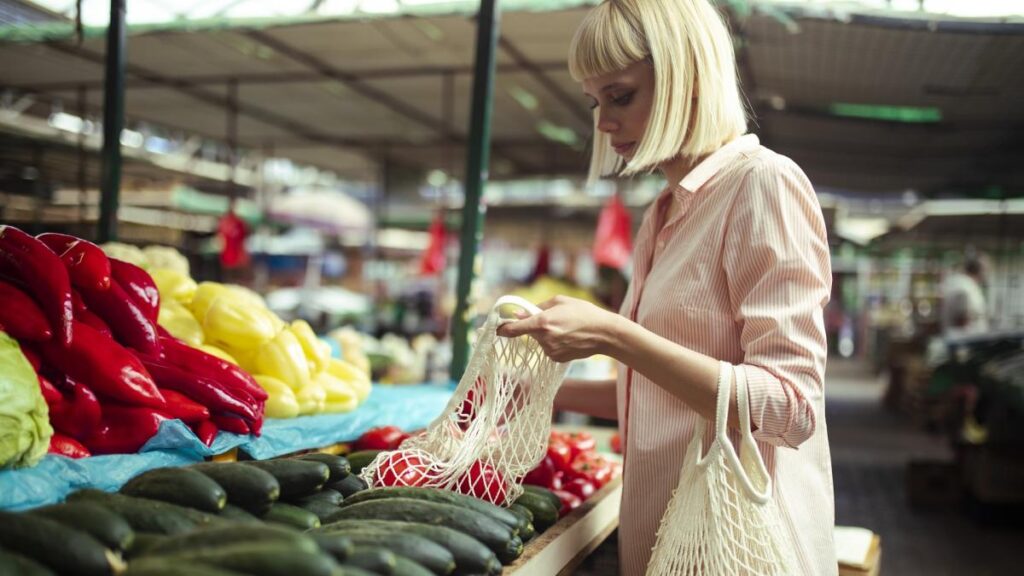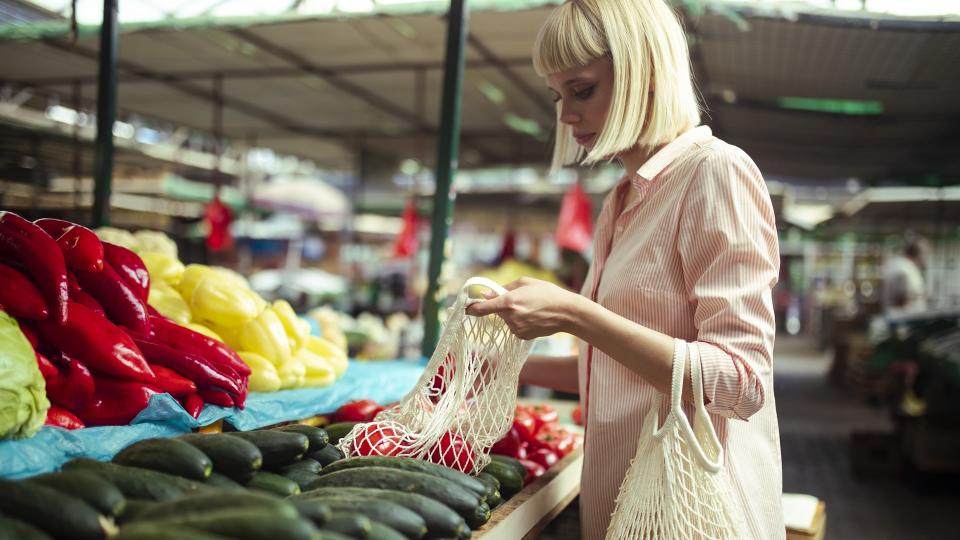Luca TDB/iStock.com
If you enjoy indulging in high-quality ingredients and foods, you're not alone: According to Statista Consumer Insights, at least half of Americans say they are eating healthier and making an effort to eat higher quality ingredients.
Read next: I'm a thrifty person: 4 items I always buy second-hand to save money
Check it out: How to get $340 a year in cash back on gas and things you've already bought
With food prices still rising, these money-saving tips allow you to enjoy quality food without overspending.
Use a cashback app
If you want to save money on your grocery budget or buy certain quality foods at a more affordable price, cashback apps are a game changer. These cashback rewards are easy to redeem and can even be used to offset your next grocery bill.
“Apps like Ibotta are easy to use because they partner with major grocery chains; you just scan your receipt after shopping at participating stores and get cash back on all eligible items,” says Erica Kullberg, attorney, personal finance expert, and founder of Erika.com.
Trending now: 7 best items to buy at Sam's Club in late 2024 for huge savings
Take advantage of credit card rewards
Many credit cards offer cash back or points on grocery purchases that can be used toward future purchases, such as quality foods and ingredients.
“I'm a pretty frugal person, but I love a good steak from my local butcher, and certain cards offer up to 6% cash back on all grocery purchases,” says Josh Bandura, co-founder of Canadian miles and points website Frugal Flyer.
Bandura uses and recommends American Express rewards and cash back cards because they tend to offer competitive rewards on groceries, but he says there are several other options to consider based on your spending habits and lifestyle. Some cards offer higher cash back percentages on grocery purchases, while others offer bonus rewards for certain stores or categories.
Visit an ethnic market
Ethnic markets can sell unique, high-quality produce at lower prices than mainstream supermarkets.
“We've found that the ethnic markets my husband and I shop at often source their fresh produce from the nearest big city and will go out of their way to help you find what you need,” says Hope Ware, founder of Under the Median.
Ware feeds her family of four a plant-based diet on a budget of just $250 a month.
“Our favorite ethnic grocery store, The Mediterranean Mart, is a mile from our house,” says Ware. “They offer fresh pita bread, high-quality olives, tahini, organic produce and spices at prices much lower than the big grocery chains. The owners are very knowledgeable about traditional Middle Eastern ingredients and are happy to share tips and recipes for how to use the products they sell.”
The story continues
Contact the company
The best way to save money is to go directly to the source. Many companies will send you freebies, samples, and coupons if you simply ask.
“Businesses love to hear from both satisfied and potential customers,” Ware says. “Look for a 'Contact Us' button on their website and tell them you'd like to buy their product. If you've already tried it, tell them about your experience and what you particularly liked about it.”
By doing so, Ware said she has received high-value coupons and even free products.
Shop on weekdays, early in the morning, or late at night
The timing of your grocery shopping can make a big difference in how much you spend. Stores often discount items during off-peak hours. Many stores restock shelves or discount items at certain times. Shopping early in the morning or late at night can help you get these deals.
“Shop mid-week, especially on Wednesdays and Thursdays, when stores are restocking and there are often fewer crowds,” says Daniel De Vries, founder of VoucherAlarm. “The supermarket on the corner where I live has a sale shelf with 35% off all fresh food, and these items usually don't expire for a few days.”
De Vries said switching to a weekday shopping habit has helped her save money and given the different discounted items she discovers new foods every week.
Grow your own produce and herbs
You don't need a big backyard to start growing your own food. Even a small balcony or windowsill can accommodate potted herbs and vegetables. Start with easy-to-grow plants like tomatoes, lettuce, and basil.
“Gardening kits are available for spices, tomatoes, strawberries, and many other fruits and vegetables,” says Sharon Rector, M.D., financial literacy expert and author of “Money Management for Women” and co-author of “Rich Dad, Poor Dad.”
“This is also great for herbs that can be expensive to buy fresh.”
More from GOBankingRates
This article originally appeared on GOBankingRates.com: 6 Tips for Buying Quality Food on the Cheap




